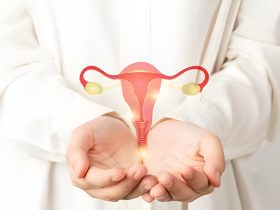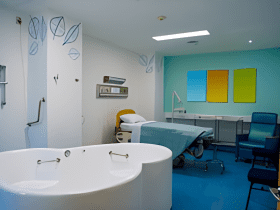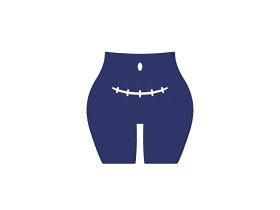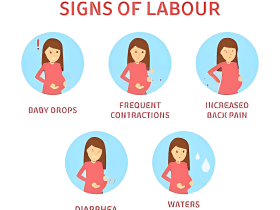Introduction to uterine fibroids


Causes of uterine Fibroids
This question still need a lot of research as doctors are not sure completely that what the real causes of uterine fibroids are. It is the hormone of females, called progesterone and estrogen that grow uterine fibroids in women body. If you have uterine fibroids, your body will produce these hormones to high level when you have periods. When your periods or menopause stops, these hormones also stop their growth or show less growth. Uterine fibroids normally shrink when your periods stop and then they stop producing any symptoms.
Uterine fibroids symptoms
Mostly women do not show any symptoms when they have uterine fibroids. Sometimes, they show few symptoms that may be mild such as periods which are heavy than you have normally. In case, the uterine fibroids start bleeding or press on organs then symptoms make it very hard so that you can enjoy your life. Some uterine fibroids symptoms find in women are:
- Pain in lower back;
- Sometimes, you urge to uterine;
- Pain when you do sex with your partner;
- Pressure in your belly or fullness in it.
If heavy bleeding occurs and you also have periods in this condition, then it may causes anemia. A patient with anemia feels pain in body. Additionally, he may also feel weakness and tried. There are various kinds of uterine fibroids that cause difficulty in your pregnancy or sometimes they also make harder for you to get pregnant. Problems that you can face during your pregnancy may involve miscarriage (losing your baby) or early labor.
How are uterine fibroids diagnosed
To determine whether you have uterine fibroids, your doctor will ask few questions from you and you should clearly tell about your symptoms. The size of uterine fibroids varies depending on the condition of your body. Doctors do pelvic examination to check fibroids size. May be you have to go to have a ultrasound or some other types of tests that can give a complete picture of your uterus. By doing so, your doctor can easily examine the condition of your body and size of your fibroids. Moreover, these tests can also help your doctor to see that where they are present. Based on complete examination, they will suggest you the antibiotics.
Uterine fibroids and pregnancy
Some women face uterine fibroids and pregnancy at the same time. This condition happens in many women because the fibroids tumors that appear in uterine do not show severe type of symptoms. They may show severe symptoms when they grow to large uterine fibroids. Well! You do not need to worry if there is simple presence of uterine fibroids in your body. But if you are pregnant and you also have uterine fibroids tumors then it might possible that you will not able to give birth to a healthy baby.
Uterine fibroids treatment
If uterine fibroids do not cause any problem in your body then it is recommended to not do anything. You can visit your doctor to examine if they have increased their size. You your symptoms are bleeding and sever pain then you should take pain medicine over-the-counter such as ibuprofen. You can also use birth controlling pills. These pills will help you to stop your pain and make your heavy periods much lighter. If you also have anemia, they take iron pills. You should know preconception diet plans to eat foods that are rich source of iron such as meats, green and fresh vegetables, wheat and beans. If your symptoms are causing more problems for you then you can think about surgery. Please note, you should not go for surgery if your symptoms do not bother you for this. Uterine fibroids take long time to develop and so you can have long time to think that what uterine fibroids treatment you should adopt. To take advice, you can also ask from specialists.
Uterine fibroid surgery
Myomectomy
This surgery is performed to take fibroids out and doctors treat you with this if you hope to become pregnant. Myomectomey increase the chances of your pregnancy.
Hysterectomy
It is common surgery that makes sure that uterine fibroids will not grow again but after surgery you will not able to bear a child.
Uterine fibroid embolization (UFE)
It is a procedure to treat uterine fibroids, performed by radiologist. Uterine fibroid embolization prevents the flow of blood to fibroids in uterus. UFE is best option rather than fibroids surgery if you are planning to get pregnant.










Leave a Reply
View Comments